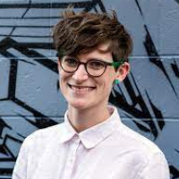Oceania Hub
Plenary Panel Feminist inquiries for climate justice
The UNFCCC Gender Action Plan acknowledges:
Climate change is a challenge that impacts every aspect of our economies and societies. And we are out of time. We need a rapid and radical transition away from the status quo to low-carbon, resilient economies and societies.
Ensuring women participate equally with men in solution-building, and ensuring that women have equal access and input to the new economy will accelerate our move away from business as usual, towards a transformative low-carbon future.
Gender equality and the empowerment of women and girls is undoubtedly a rights issue AND to meet the ambitious 1.5 C degrees target and limiting warming to well below 2 C, the needs, perspectives and ideas of 100% of the population must be included to build solutions that are effective, just and sustainable.
A just transition to climate impacts will require feminist research and solutions at all levels - but what should that look like? What kinds of feminist inquiries contribute to climate justice? This panel will discuss the displacement impacts of climate change, the need for inclusive climate leadership, the responsiveness of communities through climate activism and need for feminist informed climate finance.
Chair
Esther Onyango is a Research Fellow at the Centre for Planetary Health and Food Security, Griffith University. She is an Interdisciplinary Researcher with experience in microbiology, laboratory science research, field experimental research, large-scale ecological research, stakeholder engagement and policy analysis. Her motivation is to work in the science-policy interface to translate research outputs into policy and practice that addresses the human health risks that arise from environmental impacts. In her current role at Griffith University Australia, she have developed an interdisciplinary framework to address the threats of mosquito-borne diseases under changing climate and the subsequent implications for climate change and public health adaptation policy and practice.
Speakers
Betty Barkha is currently a final year PhD Candidate at Monash University and a technical advisor to FHI 360 on Environment and Climate Change (ECC). Her PhD research is focused on examining the gendered impacts of climate change-induced mobilities in the Pacific, specifically looking at planned relocation and displacement in Fiji. Betty is a recipient of the Monash University Faculty of Arts International Postgraduate Research Scholarship. Betty has been involved with various development organisations in Asia and the Pacific region since 2009. Prior to commencing her PhD, she worked with Asia Pacific Forum on Women, Law and Development (APWLD) in Thailand. She is currently co-chair of the International Women’s Development Agency (IWDA) and is on the board of the CIVICUS Alliance (a world alliance for citizen participation). Betty is also an advisor to FRIDA Young Feminist Fund and the Global Resilience Fund for Women and Girls (in response to COVID-19). Betty was the Monash GPS Visiting Youth Fellow in Women's Rights in Asia and the Pacific in 2017 and holds a Masters of Arts in Sociology and a Bachelor of Arts in Sociology and Psychology.
Beth Goldblatt is a Professor in the Faculty of Law at the University of Technology Sydney and a Visiting Professor in the School of Law at the University of the Witwatersrand. She researches and teaches in the areas of feminist legal theory, equality and discrimination law, comparative constitutional law, and human rights with a focus on economic and social rights, and the right to social security in particular. Beth is co-director, with Dr Cristy Clark, of the Berkeley Center on Comparative Equality & Anti-Discrimination Law’s Working Group on Climate Change.
Rowena Maguire is an Associate Professor in the School of Law at QUT and the Program Leader of the Environmental Law Research Group. Rowena’s research interests, publication and projects focus on climate and environmental regulation with a particular focus on equitable design and implementation informed by feminist and critical theory. Rowena is currently working on two research programs: climate adaptation and disaster framework institutional and regulatory analysis to identify how vulnerable populations can be better recognised and supported within policy funded by the Australian Centre for International Agricultural Research and the Centre for Justice, QUT. The second programme of work focuses on the social and environmental issues associated with the fashion industry with projects funded by the Cotton Research Development Corporation, Australian Retailers Association and the Department of Agriculture, Water, and the Environment.
Elise Stephenson is a Research Fellow at the Global Institute for Women's Leadership, Australian National University, Fellow of the National Security College, Adjunct at the Griffith Asia Institute, and 2022 Fulbright Scholar. Elise's research focuses on gender, sexuality and leadership in frontier international relations, from researching space policy, to diplomacy, national security, intelligence, security vetting, international representation, climate justice, and the Asia Pacific. She is interested in how states engage with the world on grand challenges – as well as whom is at the forefront of that engagement.
Maria Tanyag is a Fellow/Senior Lecturer at the Department of International Relations, Coral Bell School of Asia Pacific Affairs, ANU. She was selected as one of the inaugural International Studies Association (ISA) Emerging Global South Scholars in 2019, and as resident Women, Peace and Security Fellow at Pacific Forum (Hawaii) in 2021.






